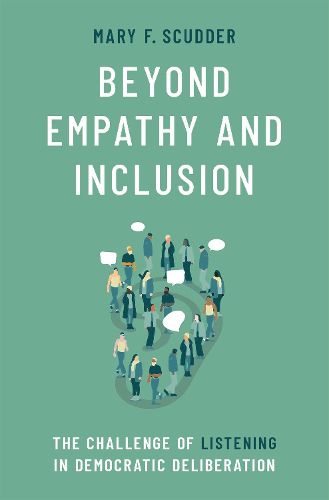Readings Newsletter
Become a Readings Member to make your shopping experience even easier.
Sign in or sign up for free!
You’re not far away from qualifying for FREE standard shipping within Australia
You’ve qualified for FREE standard shipping within Australia
The cart is loading…






Political theorists often see deliberation–understood as communication and debate among citizens–as a fundamental act of democratic citizenship. In other words, the legitimacy of a decision is not simply a function of the number of votes received, but the quality of the deliberation that precedes voting. Efforts to enhance the quality of deliberation have focused on designing more inclusive deliberative procedures or encouraging citizens to be more internally reflective or empathetic. But the adequacy of such efforts remains questionable. Beyond Empathy and Inclusion aims to better understand the prospects of democracy in a world where citizens are often uninterested or unwilling to engage across social distance and disagreement. Specifically, the book considers how our practices of listening affect the quality and democratic potential of deliberation. Mary F. Scudder offers a systematic theory of listening acts to explain the democratic force of listening. Modeled after speech act theory, Scudder’s listening act theory shows how we do something in the act of listening, independent of the outcomes of this act. In listening to our fellow citizens, we recognize their moral equality of voice. Being heard by our fellow citizens is what ensures we have a say in the laws to which we are held.The book also tackles timely questions regarding the limits of toleration and listening in a democratic society. Do we owe listening even to democracy’s enemies? After all, a virtue of democratic citizenship is the ability to resist political movements that seek to destroy democracy. Despite these challenges and risks, Scudder shows that listening is a key responsibility of democratic citizenship, and examines how listening can be used defensively to protect against threats to democracy. While listening is admittedly difficult, especially in pluralist societies, this book investigates how to motivate citizens to listen seriously, attentively, and humbly, even to those with whom they disagree.
$9.00 standard shipping within Australia
FREE standard shipping within Australia for orders over $100.00
Express & International shipping calculated at checkout
Political theorists often see deliberation–understood as communication and debate among citizens–as a fundamental act of democratic citizenship. In other words, the legitimacy of a decision is not simply a function of the number of votes received, but the quality of the deliberation that precedes voting. Efforts to enhance the quality of deliberation have focused on designing more inclusive deliberative procedures or encouraging citizens to be more internally reflective or empathetic. But the adequacy of such efforts remains questionable. Beyond Empathy and Inclusion aims to better understand the prospects of democracy in a world where citizens are often uninterested or unwilling to engage across social distance and disagreement. Specifically, the book considers how our practices of listening affect the quality and democratic potential of deliberation. Mary F. Scudder offers a systematic theory of listening acts to explain the democratic force of listening. Modeled after speech act theory, Scudder’s listening act theory shows how we do something in the act of listening, independent of the outcomes of this act. In listening to our fellow citizens, we recognize their moral equality of voice. Being heard by our fellow citizens is what ensures we have a say in the laws to which we are held.The book also tackles timely questions regarding the limits of toleration and listening in a democratic society. Do we owe listening even to democracy’s enemies? After all, a virtue of democratic citizenship is the ability to resist political movements that seek to destroy democracy. Despite these challenges and risks, Scudder shows that listening is a key responsibility of democratic citizenship, and examines how listening can be used defensively to protect against threats to democracy. While listening is admittedly difficult, especially in pluralist societies, this book investigates how to motivate citizens to listen seriously, attentively, and humbly, even to those with whom they disagree.